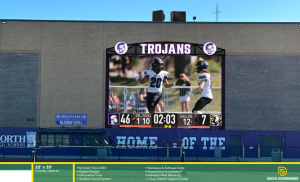Music Shaming: the stresses of aux duty
October 29, 2018
I listen to the Ramones, Childish Gambino, Sufjan Stevens, and Beyoncé. I’ve attended orchestra concerts, the Country Music Hall of Fame, and Lollapalooza. I love indie music, play classic rock when I’m cooking with my family, and blast rap in the car with my friends.
And I don’t want to hear anything about how my taste in music is ‘bad’.
Recently, I’ve noticed that people are apt to judge others music taste— which makes sense, given that nobody really can like the exact same combination artists. However, I still get defensive if someone asks me to plug my phone into the auxiliary cord in the car, despite the fact that I am proud of my music taste.
I’ll even admit, there are times when I’m sitting in my friend’s car and I want nothing more than to hurl their radio out the window. I do try and restrain myself. If I can demand that people listen to my playlist, I should not be upset when I have to listen to theirs.
So, why do people judge? It could very well be because the music you are playing is bad. But maybe it’s because it reminds them of a painful memory. Perhaps they do not understand what the artist is trying to say. Maybe they find it boring or overwhelming.
Whatever the case, music is a glimpse into a soul. When musicians play, it’s in an attempt to forge a connection with listeners. Music is, in its weakest sense, entertainment. But it is so much more than that. It exists as a bridge between people of all different social, economic, racial, and generational backgrounds. It is a hidden way of expressing love, grief, exhilaration, or despair.
In the same way that the ancients wrote ballads or poetry about their experiences, people bring their personal baggage into their music taste, and the songs they play are a similar attempt to connect with others. It’s a shout into the void, a thinly-veiled beg for understanding, for acceptance. It’s a way to put on the mask of the person you wish you could be. It’s a way to express complex emotions without ever speaking.
Just as I will never accept someone playing the Chainsmokers in the car, I do not expect everyone to begin tolerating other people’s playlists. However, if we expect people to be more accepting in the future, we need to start with music.
And if you’re looking for a recommendation, I would start with the Shins.

























